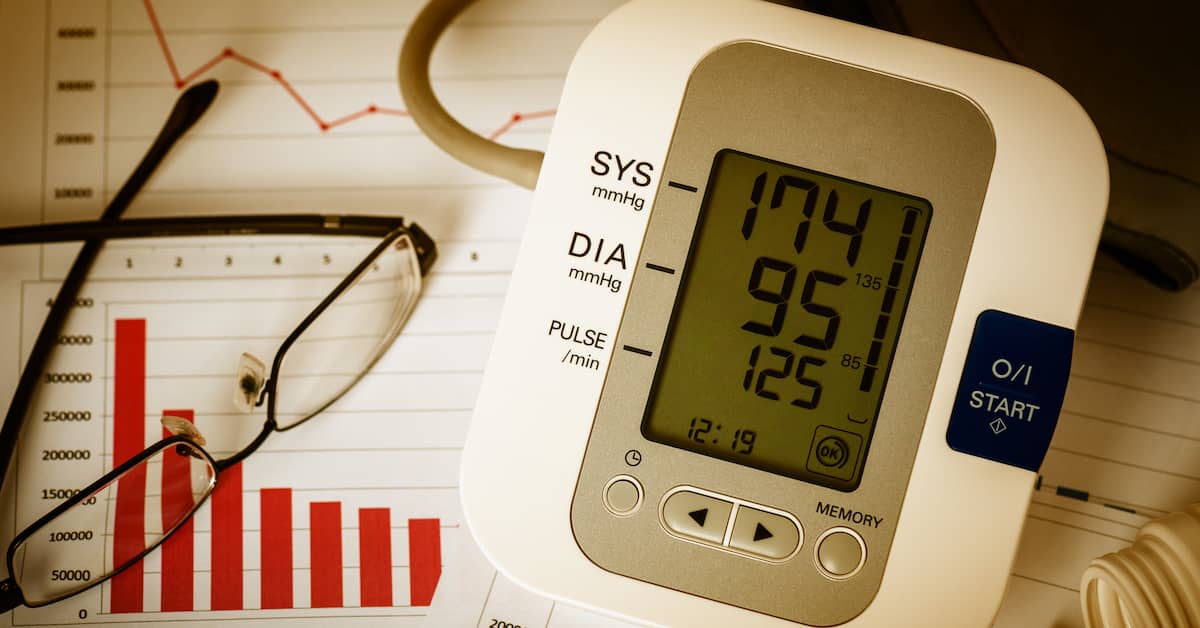
What if the most critical moment to check your blood pressure isn’t during the day, but while you’re sound asleep?
New research reveals that nighttime blood pressure patterns, especially a phenomenon called "reverse dipping," could be a red flag for serious health risks like heart disease and dementia. Let’s uncover how this silent warning could shape your health future—and what you can do about it.
Key Takeaways
- A rise in nighttime blood pressure, or lack of a 10–20% drop, is strongly associated with cardiovascular disease and dementia risks.
- "Reverse dipping" amplifies memory problems, doubles brain tissue damage, and increases the risk of Alzheimer’s by 64%.
- 24-hour blood pressure monitoring can detect reverse dipping, especially in those with hypertension, diabetes, or sleep apnea.
Why Night-Time Blood Pressure Spikes Could Harm Your Heart and Brain
Checking your blood pressure with your own home monitor is a sensible health practice. But, of course, you can't do this while you’re asleep. Now, new research reveals that this might be the most important time to take a blood pressure reading.
You see, blood pressure varies over 24 hours and should dip during the night. If it goes up—called reverse dipping—you’re at increased risk of not only heart disease but dementia.
Like many of the body’s most essential processes, blood pressure should follow a circadian rhythm. That means a healthy blood pressure reading is ten to 20 percent lower during sleep than readings taken during the day. This nocturnal fall is called dipping.
But some people, called “non-dippers,” either experience no fall at all or their blood pressure falls by less than ten percent. Researchers consider this harmful—even more so if blood pressure actually rises during sleep.
Reverse dipping is frequently seen in people who already have hypertension, but it can also occur in those who have perfectly normal blood pressure readings. While reverse dipping is already an accepted measure of increased cardiovascular risk, new research shows just how important an indicator it is.
The Most Important Indicator of Cardiovascular Risk?
One study found that 14.3 percent of participants with high blood pressure had reverse dipping, while it occurred in only 4.5 percent of those with normal blood pressure.
Professor Ramón C. Hermida, from the University of Vigo, leads the Hygia Project, which investigates the cardiovascular implications of this phenomenon. The Hygia Project involves 292 doctors at 40 primary care centers across Spain.
Prof. Hermida’s group published research last year after closely following those taking medication for high blood pressure. Commenting on their findings, he said "average systolic [upper] blood pressure when a person is asleep is the most significant and independent indication of cardiovascular disease risk, regardless of blood pressure measurements taken while awake or when visiting a doctor."
Even more concerning, dangers also extend to the brain as was shown by researchers from Columbia University, New York, in a study published in the journal Neurology last year.
Reverse Dipping Amplifies Memory Problems
The Columbia research team found that reverse dipping was linked to an increase in the volume of small lesions in brain tissue called white matter hyperintensities (WMH), particularly among those with high blood pressure.
We’ve written about white matter lesions before and pointed to numerous scientific studies that document their considerable negative impact on memory, cognition, and overall brain health. In fact, research out of Columbia showed that the presence of white matter hyperintensities increases the risk for and progression of Alzheimer's disease.
This new Columbia study found people with the double whammy of hypertension and reverse dipping had over twice the amount of white matter vascular damage. They also had lower memory scores.
Lead researcher Adam Brickman explained, saying, "It appears that reverse dipping may amplify the effects of high blood pressure on people's cerebrovascular health and associated cognitive abilities."
In addition, more recent research linked reverse dipping directly to the development of Alzheimer's disease.
Increases Risk of Dementia by 64 Percent
Researchers from Uppsala University in Sweden used data on 997 men with an average age of 71, of which just over a third were taking blood pressure medication. They measured their blood pressure around the clock, and again, measured blood pressure in 611 of the participants six years later. They followed the men for 24 years.
Xiao Tan, a member of the research team, described the startling result: "The risk of getting a dementia diagnosis was 1.64 times higher among men with reverse dipping compared to those with normal dipping."
Senior study author Christian Benedict explained the reason why reverse dipping is so harmful to the brain, saying, "The night...represents a critical time window for human brain health...For example, in animals, it has previously been shown that the brain clears out waste products during sleep, and that this clearance is compromised by abnormal blood pressure patterns."
We recently talked about this waste-clearance process in another newsletter article, as well. It’s one of the main reasons why regular, uninterrupted sleep is so important to the long-term health of your memory and cognition. It's also a good idea to support healthy blood pressure through diet and supplements.
Other Health Problems Can Cause Reverse Dipping
While reverse dipping is often found in those with hypertension, it is also frequently documented in people with chronic kidney disease, type-2 diabetes, and sleep apnea syndrome.
If you suffer from any of these conditions, you can ask your doctor for 24-hour blood pressure monitoring to get a more accurate picture of your blood pressure numbers. If desired, you can also purchase home monitors that can measure your blood pressure while you sleep in your own bed.
Summary
Blood pressure naturally dips during sleep, but for some individuals, it either stays the same or even rises—a phenomenon called "reverse dipping." Research shows reverse dipping significantly increases the risk of cardiovascular disease, dementia, and white matter brain lesions that impair memory and cognition. This harmful pattern is linked to conditions like hypertension, sleep apnea, and chronic kidney disease. Monitoring nighttime blood pressure is crucial for identifying this risk and protecting long-term brain and heart health.
Frequently Asked Questions
What is reverse dipping?
Reverse dipping occurs when blood pressure stays constant or rises during sleep instead of dropping by 10–20%, as it should.
Why is reverse dipping dangerous?
It increases the risk of cardiovascular disease, white matter brain lesions, and dementia, including Alzheimer’s disease.
How is reverse dipping detected?
24-hour blood pressure monitoring tracks readings during sleep and awake hours.
Who is at risk for reverse dipping?
People with hypertension, sleep apnea, type 2 diabetes, or chronic kidney disease are more likely to experience reverse dipping.
Can reverse dipping be treated?
Yes, treatment often involves lifestyle changes, addressing underlying conditions, and medication under a doctor’s guidance.
